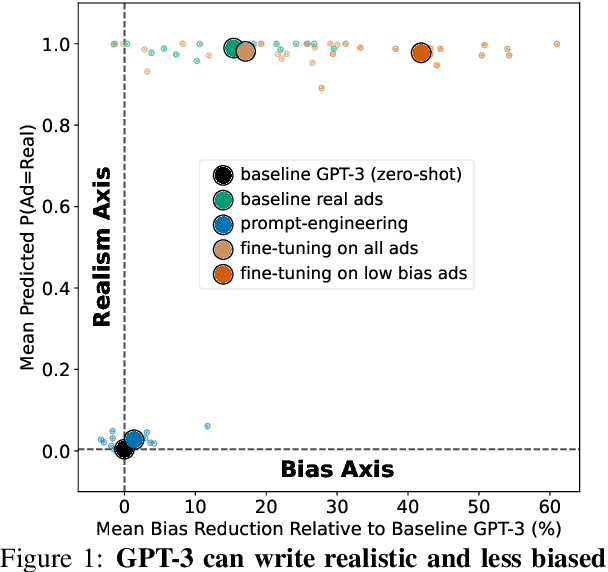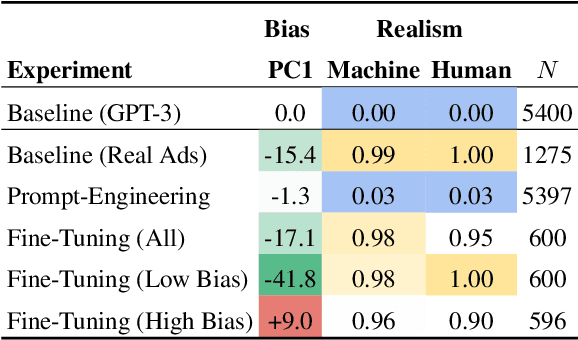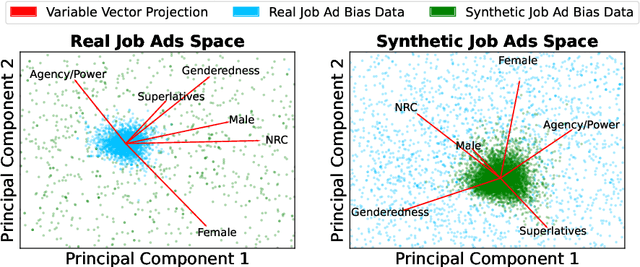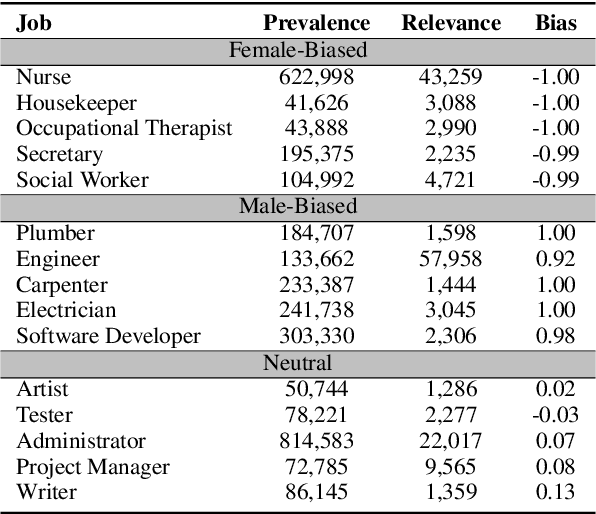Dalia Sara Gala
Looking for a Handsome Carpenter! Debiasing GPT-3 Job Advertisements
May 23, 2022



Abstract:The growing capability and availability of generative language models has enabled a wide range of new downstream tasks. Academic research has identified, quantified and mitigated biases present in language models but is rarely tailored to downstream tasks where wider impact on individuals and society can be felt. In this work, we leverage one popular generative language model, GPT-3, with the goal of writing unbiased and realistic job advertisements. We first assess the bias and realism of zero-shot generated advertisements and compare them to real-world advertisements. We then evaluate prompt-engineering and fine-tuning as debiasing methods. We find that prompt-engineering with diversity-encouraging prompts gives no significant improvement to bias, nor realism. Conversely, fine-tuning, especially on unbiased real advertisements, can improve realism and reduce bias.
 Add to Chrome
Add to Chrome Add to Firefox
Add to Firefox Add to Edge
Add to Edge